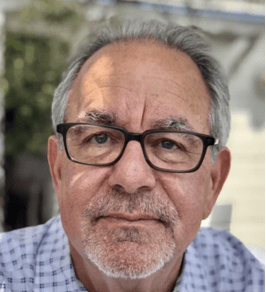Recovery from a substance use disorder is a lifelong process. For some, this process involves relapse, which can feel like a crushing failure, but it shouldn’t. We now understand that addiction is a medical disease, and therefore, we can hope for steady progress toward recovery, but occasionally there may also be relapse.
Treatment for opioid use disorder (OUD) has a success rate and relapse rate similar to other chronic illnesses, such as diabetes or hypertension. Can you think of another medical disease do you blame the patient for the disease progressing?
In this article, we’ll discuss the role of relapse in recovery, and steps to take to “course correct” when a relapse occurs.
Why Relapse Can Be an Important Part of the Process
A relapse is when an individual returns to substance use after a period of abstinence. It can occur early in sobriety or even years after the beginning of the recovery journey. Relapse is an extremely normal part of recovery. In fact, approximately 40-60% of those with a substance use disorder will relapse at some point in their recovery journey. Many will relapse multiple times and at different periods of their life.
Relapse can be a frustrating experience for the person who has attempted to get sober. This frustration can come for multiple reasons, including:
- Disappointment in themselves and feeling like they’ve “failed.”
- Worry about disappointing others and fearing judgment from friends, family, counselors, and peers in recovery.
- A feeling of hopelessness.
- The fear of “starting over” and beginning the recovery journey again.
- Fear of legal consequences, losing sober housing, getting fired, or other substance use related penalties.
Addiction As a Disease, Not a Moral Failing
Why do some people drink in moderation and never have negative impacts? Why can some people try a drug once and never again while others try it and struggle to stop for the rest of their lives? According to most recovery professionals and researchers, the reason is because addiction is a disease. The disease model of addiction states that addiction is a biological, psychological, and social disease that is chronic, lifelong, and progressive in nature. Symptoms can be managed with sobriety but never fully cured, as the addiction can always come back if sobriety isn’t maintained.
Unfortunately, however, addiction is an incredibly moralized disease, meaning that those who experience the disease of addiction are looked down upon for their disorder. Not to mention, people who use drugs often incur legal problems that can make recovery complicated to navigate.
Because addiction has been so moralized, it can be difficult for many people to recognize that relapse as a part of the disease of addiction is just as common as any other disease. Nobody gets angry or disappointed in a person with diabetes for high blood sugar or when someone with heart disease has a high blood pressure reading. These are treated medically and often with compassion. But when it comes to a substance use relapse, the addicted individual is treated with scorn, derision, disappointment, and even isolation.
The Lessons to be Learned from Relapse
Many addiction professionals are hesitant to normalize the concept of relapse because of the fear that it will make the recovering person more likely to not think of relapse as “a big deal.”. Relapse can be a grave matter, as tolerance changes can change during periods of abstinence. If a person with a decent amount of sobriety time tries to use the same amount they were using before they stopped, they’re far more likely to overdose or have severe medical consequences.
But demonizing relapse comes with its own set of problems, too. It makes people afraid to admit when they have a slip up (as many will do during recovery), can make them push sober supports away during a crisis, and in some instances, can even get them removed from their treatment program or recovery environment. This extreme reaction to relapse needs to stop. The sooner practitioners, recovery allies, treatment programs, and those in recovery start approaching relapse as a regular part of recovery, the sooner the recovery program can continue post-relapse.
Relapse is also an opportunity to learn. Many treatment centers will do a post-relapse autopsy to gain as much insight into what happened to prevent future relapses. Relapse doesn’t have to be a big deal if treated like a regular part of the recovery journey and as a chance to learn and grow. Another unintended benefit of relapse is recognizing that change is necessary—some need or needs are not being met in the recovery program, and an alteration in the recovery plan or recovery environment is needed.
Conclusion: Relapse Can Be Part of Recovery
Relapse can be a part of recovery, and does not define recovery. So, then, how do we define “success” in recovery? The Substance Abuse and Mental Health Services Administration (SAMHSA) defines recovery as: a process of change through which individuals improve their health and wellness, live self-directed lives, and strive to reach their full potential.
While some still argue that complete and permanent sobriety is the only “successful” recovery, this is a shortsighted definition. Freedom from drugs and alcohol, regaining control of one’s choices, and living a healthy and happy life is a more accurate and working definition. While relapse can work against this goal of health and happiness, it doesn’t necessarily have to. If a relapse is treated with patience and used as a tool for understanding and growth, it can be an incredibly beneficial part of a person’s recovery journey.
If you’ve recently experienced a relapse or know someone who has, consider the following:
- Seek medical treatment if necessary. It’s better to be safe than sorry.
- Reach out to a trained substance use counselor who can assist you with a post-relapse autopsy and who can help you adjust your treatment and recovery plan.
- Attend a 12-step, Alcoholics or Narcotics Anonymous meeting.
- Discuss the situation with a trusted sponsor or sober mentor.
About the Author
Scott H. Silverman is a high-profile expert on addiction and recovery, making frequent public and media appearances for the last 40 years. He is the author of The Opioid Epidemic, and the Founder and CEO of Confidential Recovery, a San Diego substance abuse treatment center that specializes in helping Veterans and First Responders get and stay sober.


